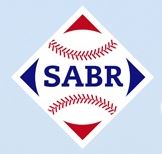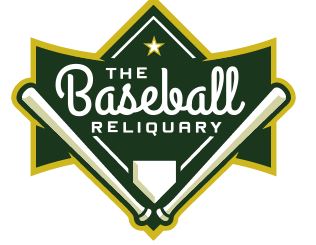Baseball Roundtable recently published a brief (very) informal reader survey on Baseball Commissioner Rob Manfred’s decision to have permanent baseball ineligibility bans lifted at the time of the banned player’s death. The most discussed impact of the impact of the change relates to the possible election of previously banned players to the Baseball Hall of Fame (most specifically Shoeless Joe Jackson and Pete Rose). That topic was covered in the brief, informal survey, which also included some more general questions about how such bans should be justified and their general impact.
First, some general information on the permanent bans. They have been primarily levied against players, coaches and executives allegedly tied to gambling – betting on baseball on baseball or accepting or offering bribes for actions to affect the outcomes of games. A May 13, 2025 Associated Press article listed 17 players affected by Manfred’s decision to lift permanent bans at a player’s passing and all but one of those bans was gambling related. One player, Giants’ outfielder Benny Kauff, was banned in 1921 after being indicted on charges of auto theft and possession of a stolen vehicle. Kauff was acquitted in the courts, but not reinstated by MLB. Note: The eight players banned in relation the 1919 Black Sox Scandal (alleging involvement in the fixing of the 1919 World Series) were acquitted in the courts, but the ban remained in place.
There have been many of (what proved to be) non-permanent bans from baseball. For example, Willie Mays (in 1979) Mickey Mantle (in 1983) were banned from MLB for employment (after their retirement as players) ties to casinos. They were reinstated in 1985. Yankees’ owner George Steinbrenner was banned in 1990 for hiring a private detective to investigate Dave Winfield. Steinbrenner was reinstated in 1993. Over MLB history, individuals have been banned from baseball for varying lengths of time for such additional issues as (but not limited to) violation of baseball’s reserve clause, illegal drug use, charges of sexual harassment and “barnstorming” without permission.
In relation to the Hall of Fame, while the Hall has consistently gone along with the MLB Commissioner’s Office decisions on bans, it was not until 1991 that the Hall officially established a policy that players deemed ineligible by MLB would also be ineligible for election to the Hall. (1991 would have been Pete rose’s first year on the BBHOF ballot). Note: Shoeless Joe Jackson (one of the players permanently banned by MLB (1919 Black Sox Scandal) received two votes (out of 202) in the 1936 HOF balloting. Jackson also got two votes (out of 226) in the 1946 nominating balloting (at the time, there was a “run-off” vote, with the top 20 vote-getters moving on to the final Hall of Fame ballot).
Now for the readers’ opinions on this issue. My first observation is that this survey drew a far lower response than past Roundtable surveys on MLB’s recent rules changes (no-pitch intentional walks, ghost runner in extra innings, infield shift restrictions, pitch clock, etc.). Those Roundtable surveys each drew more than 100 responses. The Hall of Fame ban survey drew just 32. Readers did not seem to have as much interest (or as strong of opinions) on the transition from permanent to “lifetime” bans. Also, the readers who did respond voiced the strongest support for the previous system of permanent bans.
Here are the survey responses in order of support:
- The bans (permanent ineligibility) should remain in effect, with ongoing options for appeal on a case-by-case basis – 62.9%.
- I’m fine with lifting the bans upon a player’s passing. BBHOF voters can decide on “Hall worthiness” – 21.9%.
- Any bans should only apply to “on-field” baseball activity, let BBHOF voters decide on Hall of Fame election even before he player(s) passing – 12.5%.
Again, since 1991, the Hall of Fame has officially banned players on MLB’s permanently banned list from the Hall of Fame balloting. This (12.5%) group supports leaving the decision on Hall of Fame worthiness to voters. Under the decision to lift bans upon a player’s passing, that would most often mean consideration by one of the Hall’s Era Committees, rather than on the BBWAA Ballot.
The survey also included a few questions on how bans should be justified.
- Bans should be applied in cases where the player(s) actions (on or off the field) affect the integrity of competition and/or the reputation/public image of the National Pastime – 46.9%.
Basically, support of the current justification.
- Bans should be applied only in cases where a player’s on-field actions affected the outcome of a game/series/season – 3.1%.
- Bans should only be imposed if a player has been convicted of a crime in a court of law – 3.1%.
The “No opinion on this issue” option was selected by 3.1%.
A few representative comments:
Steve, MI – Given the nature of independence of the Hall, I would like to have a better understanding of their position on the matters beyond the “character clause.” I am generally a “Hall of Very Good” type of fan, but do agree that individual conduct and character are important traits worthy of thoughtful consideration.
Paul, FL – We can no more restore Shoeless Joe Jackson to baseball than we can give back the throne to Lear and Oedipus.
Richard, CA – The ban really becomes irrelevant once the player passes. A “lifetime” ban seems most appropriate.
Robert, MN – I would have like to have seen one more question in the survey – regarding whether a ban should be imposed only on activity/indiscretions during the time the individual is active (player/manager/coach/ executive) in MLB or whether it should apply to later actions that might reflect on the reputation of the game. Editor’s note: Excellent thought. Apologies for the omission of this issue form the survey).
Don, MN – A permanent ban or a lifetime ban? We need to clarify. Perhaps, there needs to be two or three categories (permanent, lifetime, temporary) depending on the seriousness of the transgression. I believe “fixing” games would be deserving of a permanent ban, betting on games you participated in possibly lifetime and simply betting on baseball (not games you participate in) temporary. There should be some very specific guidelines as to the relationship of the violations to the length of the penalty.
Primary Resources: MLB reinstates Pete Rose and Shoeless Joe Jackson, making them Hall of Fame Eligible, by Ronald Blum, Associated Press, May 13, 2024); A Full List of Players, Coaches and Owners Permanently Banned by Major League Baseball, Associated Press, May 13 2025; Pete Rose’s Hall of Fame Eligibility Ban Lifted – Here’s What Could Happen Next, by Antonio Pequeno, Forbes.com, Nay 13, 2025.
Baseball Roundtable – Blogging Baseball Since 2012.
Baseball Roundtable is on the Feedspot list of the Top 100 Baseball Blogs. For the full list click here.
I tweet (on X) baseball @DavidBaseballRT
Follow Baseball Roundtable’s Facebook Page here. More baseball commentary; blog post notifications; PRIZES.
Member: Society for American Baseball Research (SABR); Negro Leagues Baseball Museum; The Baseball Reliquary.
P 1119






Speak Your Mind